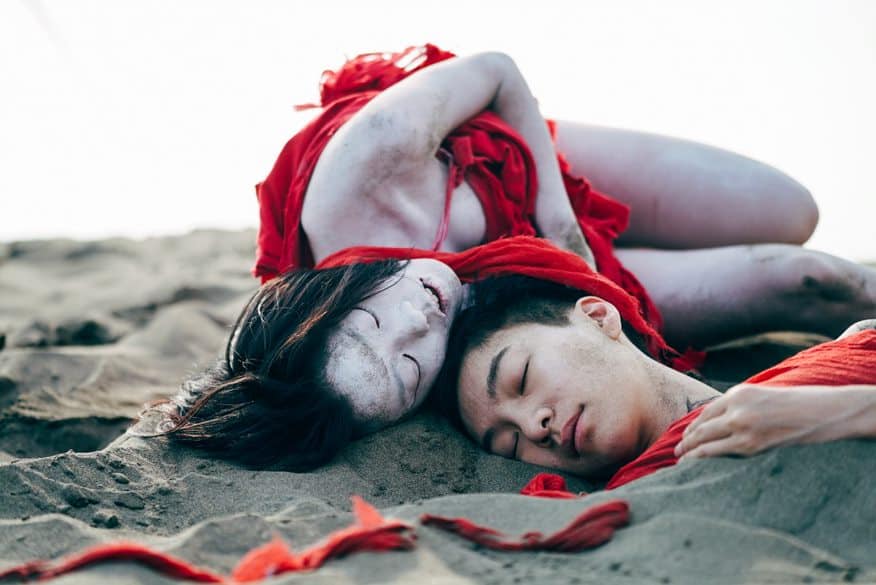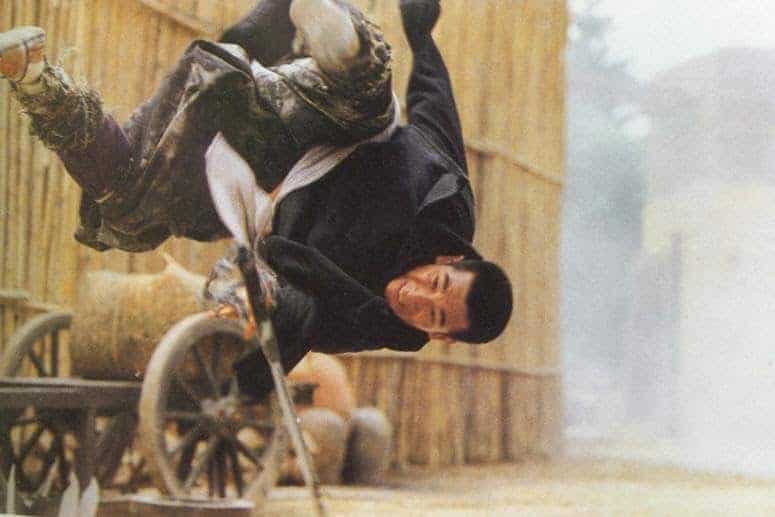According to some sources, Zero Chou is the only openly lesbian filmmaker in Taiwan, so it does not come as a surprise that she often tackles LGBTQ+-related topics. For her second feature film “Spider Lilies” (2007), she was awarded with the Teddy Award at Berlinale. After nearly a decade of work predominantly on television and on documentaries, she is back with her newest feature “Wrath of Desire”, which premiered in the more radical Rebels With a Cause competition at Tallinn Black Nights. As it is suggested in a short graphic before the opening credits, it is the first instalment of the intended six-film series about LGBTQ+ romances set in the different East-Asian cities.
“Wrath of Desire” is screening at Tallinn Black Nights Film Festival

After a prologue set on a beach in an imaginary world, presumably in the afterlife, we meet Phoenix Du (Peace Yang) as she is being attacked by an unknown assailant whom she fights off and stabs with a knife in something that probably exceeds the boundaries of self-defence. The prosecutor Jade Liu (Weng Chia-wei) comes to the scene and feels instant attraction towards the suspect and offers to help her with a ride. After another attack and a piece of background information about Phoenix that motivates it, the two of them end up in Jade's flat and spend a night of passion together. The two women come from different backgrounds; Phoenix is a free-spirited, openly gay artist, while Jade is a bit of a Catholic fundamentalist, so their relationship is not exactly possible, no matter how much Phoenix wants it.
The other obstacle is Phoenix' legal status: she is convicted of manslaughter and sentenced to prison for 3 and a half years. Once in there, she shows her toughness and the firmness of her morale by protecting the weaker prisoners from the bullies, but the thing that keeps her sane are letters she writes to Jade. On the other hand, Jade gets involved with another person from one of her next cases, a young and fragile gay man Meng-ye (Hsu Yu-ting), accused of inflicting injuries to his cousin who abused him. Once Phoenix gets out, the three of them, each of them wounded and damaged in a different way, start living together, but the black and white flash-forward sequences set in the police interrogation room signal that something terrible would interrupt the idyll.
As a hybrid between art house and genre cinema, “Wrath of Desire” is quite an effective piece of cinematic work, as Chou gently examines the relations between sex and gender and the different mechanisms of societal pressure towards those who do not fit the standard moulds and roles. In the mystery department, Chou is quite efficient in revealing the crucial information in small doses and at just right moments in time, so the motivations for each of the characters' actions are rock solid. The melodramatic aspect of the emotions always in the high register can get tiresome, but the elements of surprise theoretically help the viewer stay involved with the story and the characters.
The only thing that is a bit excessive is Phoenix' prison stint which theoretically serves to develop her character traits in more detail (which was not necessary), but is actually overlong and tells a completely different and unrelated story about the bullying culture within the prison lesbian community. Without it, or with it trimmed down only to the necessary elements, the runtime would not be the demanding two hours, but considerably leaner and the central romantic triangle and the mystery would feel more focused.
Visually, “Wrath of Desire” is quite a handsome movie. Playing with the focus and leaving the edges of the frame blurred sometimes, especially in tenser quasi-action scenes, Chou's life partner Hoho Liu takes the most she can from her hand-held camerawork, while the editing of the two of them could be more resolute. The technical aspects of production- and costume design, especially in the more surreal sequences inspired by the Japanese Butoh dance, are top notch, while the percussion-heavy score by Amy Wu builds up the tension throughout the film.
Regarding acting, Zero Chou did everything she could to make her stars shine. Her screenplay is rock-solid in the character development aspect, and the trio of actors seize their opportunities. Peace Yang as Phoenix is both tough and emotional, with a pinch of tragedy, Hsu Yu-ting is fragile, but impulsive as Meng-ye, while Weng Chia-wei balances Jade's reserve and internalised turmoil quite well.
“Wrath of Desire” is more than a decent watch that quickly alternates the worlds it touches, blending fantasy, reality, emotions and desire into a coherent whole. As the first part of the intended serial, it is an intriguing opening that raises the expectations.















